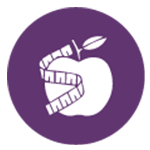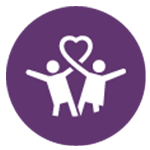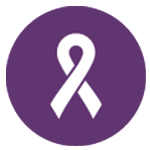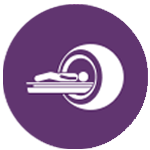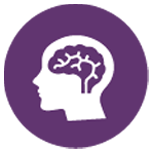Women who have or previously had breast cancer often ask the question: what can I do to lower the risk of the cancer growing or coming back?
Of course there is no magic formula, but controlling your weight, exercising regularly, and making healthy food choices may help lower the risk of the breast cancer coming back and protect from developing other diseases.
Over- weight women are thought to be at a higher risk for breast cancer because the extra fat cells make estrogen, which can cause extra cell growth, that might in turn increases the risk of breast cancer.
Some scientific studies show that Diet is thought to be partly responsible for about 30% to 40% of all cancers. On the other hand, other studies show that no food or diet can prevent you from getting breast cancer. Having said that, some foods can help make your body healthier, boost your immunity and may keep the risk of breast cancer low.
Eating foods grown without pesticides may protect against unhealthy cell changes that are associated with the development of breast cancer.
It is a fact that breast cancer is less common in countries where the typical diet is plant-based and low in total fat (polyunsaturated and saturated). Some studies suggest that girls who eat a high fat diet during puberty, even if they do not become over weight or obese, may have higher risk of developing breast cancer later in life.
What are the best foods to eat when you have breast cancer
During cancer therapy follow these four diet tips
- Stay Hydrated: Aim for at least 2 liters or 3 liters of fluids per day, mostly caffeine-free fluids.
- Get enough calories: The best way to know if you are eating enough calories for energy is to weigh yourself once or twice a week. Avoid counting calories or using the calorie calculator. Eat regularly through-out. the day. Eat small frequent meals 5 to 6 times a day.
- Focus on Nutrients: Get more nutrients per calorie. Avoid getting empty calories that have no nutritional value such as calories from alcohol. Choose more fruits, vegetables, whole grains and beans, nuts, seeds, meats/eggs, and dairy products.
- Protein is very crucial: Adequate amount of protein intake helps maintain lean body muscle which is very important in keeping you strong and fit. Good sources of proteins are; meat, eggs, fish, poultry, pulses such as beans, lentils, and chickpeas, nuts and seeds, soy and dairy products
How much of each food group is an acceptable amount?
Five or more servings of fruits and vegetables per day is the recommendation:
Fruits and vegetables contain antioxidants and anti-estrogen properties which is thought of as a limiting factor of cell multiplication and growth. Cruciferous vegetables such as broccoli, cauliflower, kale, cabbage, and Brussel sprouts, are rich in phytochemicals that are known to be anti-cancerous.
Whole grain products are rich sources of fiber:
Whole grains are unprocessed foods that are high in complex carbohydrates, fiber, phytochemicals as well as vitamins and minerals. High fiber intake may have a positive effect as a whole by altering hormonal actions of breast cancer as well as other hormone-dependent cancers. The recommended consumption is between 25 and 30 grams of fiber daily.
Fruits, vegetables and whole grains are well-reputed to contain phytochemicals/nutrients with antioxidant, antiestrogen chemo-preventive properties that may prevent cancer.
Broccoli and breast cancer:
Extensive research has been conducted at John Hopkins Medicine regarding the nutritional value of broccoli sprouts and came out with the conclusion that broccoli sprouts contain more potent phytochemicals than mature broccoli. Once Indoles (phytochemicals that are found in broccoli sprouts and to a lesser extent in broccoli) are digested they are broken down by the stomach into diindolylmethane or DIM. DIM was found to suppress human breast cell growth by preventing cancerous cells from dividing and multiplying. In addition, not only DIM prevents the actual spread of the disease, but it also promotes the death of existing tumor cells by altering levels of a certain protein that keep tumor cells alive.
Fat or no fat? What type of fat to eat?
Some studies suggest that the type of fat you consume may trigger the development of breast cancer. It is advised to limit the intake of foods high in saturated fats, such as beef, processed luncheon, lamb, organ meats, butter, cream, and full fat processed cheeses. Decrease intake of foods containing trans-fatty acids such as commercially prepared baked foods, crackers, and chips. Hydrogenated oils like margarine are considered as trans fats and are highly not recommended, try to decrease the intake of these as much as you can.
On the other hand, make sure to balance your caloric intake of fat by increasing your intakes of fatty fish like salmon, tuna, mackerel, herring, and sardines. Make sure to have these at least 2 to 3 times per week. These are rich sources of Omega-3-polyunsaturated fats, which according to some research has been associated with the inhibition of the growth of breast tumors.
Choose the right protein.
For good protein sources choose lean protein such as poultry, fish, pulses, dried legumes, and low-fat dairy. Avoid cured, smoked and pickled foods. There is controversial research regarding soy. Some studies suggest that up to three servings of whole soy, such as tofu, soy milk, and edamame, does not increase the recurrence of breast cancer is a survivor.
What about Alcohol?
Drinking alcohol is a known risk factor for breast cancer. In 2011 the Journal of American Medical Association(JAMA) published a large study on 121,700 women. This study suggested that drinking three glasses of wine or more per week throughout life increases the risk of a woman developing breast cancer by a small (15%) but a significant percentage. It showed that women who drank three to six glasses of wine per week had a 15% more risk in developing breast cancer compared to those who did not drink alcohol. Hence, avoiding alcohol altogether is the healthiest approach when it comes to breast cancer.
Maintaining a healthy weight
If you have had breast cancer, getting to and maintaining a healthy weight may lower the risk of recurrence. It has been shown that women who are overweight or obese have higher levels of estrogen circulating in their blood than women who are at their ideal body weight. This is crucial to reduce the risk of future recurrence of hormone-responsive cancer. Weight reduction and weight maintenance should be accomplished through a healthy diet and regular exercise once treatment is completed. It. It is not advised to lose weight during the treatment as it may lead to loss of muscle mass and lower immunity which in turn might lead to a slower healing process and fatigue.
Stay Physically Active
Physical activity has been shown to improve quality of life, alleviate physical functioning and lower the symptoms of fatigue among breast cancer survivors. Moreover, studies have found that there is a consistent link between physical activity and breast cancer coming back and from dying of breast cancer. There are no specific recommendations on how much exercise should be done on a weekly basis, but in general, the more you are active the better. The benefits of being physically active help maintain your weight and your lean muscle mass which are critical for breast cancer patients during and after treatment.
The Mediterranean is by far superior to any other diet
Mediterranean diet is typical of the areas around the Mediterranean sea. Most of its dishes are prepared fresh with olive oil. It is rich in pulses, cereal grains, fresh fish, vegetables and fruits. It is known for its health benefits as it is high in omega-3, antioxidants, phytochemicals, and fiber. Most of the food ingredients are grown locally with minimal exposure to pesticides and less processing. Many studies have been done on this traditional type of diet and so far all indications are very positive not only for general health status but also to many diseases including breast cancer and heart disease. It is not clear whether it is the high intake of olive oil or the abundance of fruits and vegetables that results in this diet’s medicinal properties.
In a nutshell
A well-balanced diet that is rich in fruits and vegetables, whole grains, fish, poultry, and low in saturated fats and sugars are always encouraged. Try to have small frequent meals rather than big meals. Avoid processed foods, cured and barbequed meats. Stay active to maintain a healthy weight. A typical Mediterranean diet seems the best type of diet to follow during and after the treatment of breast cancer for its high content of anti-cancerous agents such as phytochemicals in fruits and vegetables. Moreover, it is also healthy for the general health status of the individual as it is high in fiber and polyunsaturated fats, and low in saturated fat.
Potential “anti-cancerous”/ cancer fighters phytochemicals in foods
| Phytochemical | Food Source |
| Carotenoids | Dark yellow/orange/green vegetables and fruits |
| Isothiocyanates | Mustard, horseradish, cruciferous vegetables |
| Phenolic compounds | Garlic, green tea, soybeans, cereal grains, cruciferous vegetables, flaxseed |
| Flavanoids | Most fruits and vegetables |
| Organo-sulfides | Garlic, onion, leeks, shallots, cruciferous vegetables |
| Isoflavones | Soybeans, legumes, flax seed |
| Indoles | Cruciferous vegetables: broccoli, cauliflower, kale, cabbage, Brussels sprouts |

